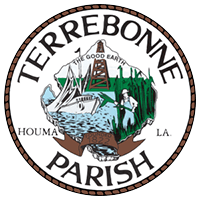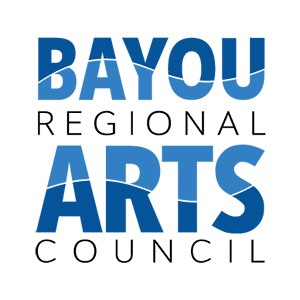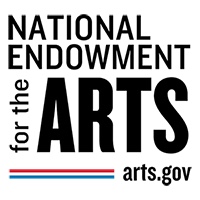
Louisiana Project Grants
ABOUT
Louisiana Project Grants are available to non-profit organizations within the Bayou Regional Arts Council 6-parish service region, to support arts and culture programs. Applications are open May 5th – June 27th, 2025. Draft deadline June 13th, 2025.
The last day to have the CDC look over and give feedback on drafts in Submittable is Friday, June 13th, 2025. If you would like us to give feedback, you must email us at CDC@bayouarts.org before the deadline and let us know so we may review your application.
GOALS OF THE LPG PROGRAM
Diversity, Equity and Inclusion
Stimulate healthy competition in grant proposal submissions
Increase the level of creativity, innovation and awareness of new trends in project development
Encourage professional artists to undertake projects that have meaningful community involvement and collaboration
Leverage additional local and national support for the arts in Louisiana
PRIORITIES OF THE LPG PROGRAM
Must be an ART project involving culinary, dance, design arts, folklife, literature, media, music, theatre, or visual arts and crafts.
Must show how the project accounts for the population of the region and promotes diversity, equity, inclusion and accessibility
Emphasis on Innovation and Artistry
Risk Taking/Trying something new
Focus on learning as an outcome as well as quantitative outcomes
Multi-parish partnerships between larger, urban organizations and their rural counterparts or vice-versa
Projects that have a trajectory to continue to enhance the region beyond the funding period
ELIGIBLE APPLICANTS
Louisiana nonprofit tax exempt organizations or with 501(c)(3) with the Internal Revenue Service
All applicants
must have a Unique Entity Identifier (UEI) number and be registered with the System for Award Management (SAM, www.sam.gov).
Local, parish, or state governmental agencies such as libraries or municipalities
Public or private schools and school boards (each school within a school system is considered a separate entity)
Colleges or universities sponsoring activities (each university department is considered a separate entity) intended for community participation (not academic, credit-producing, or curriculum-oriented projects). Such activities must provide significant access and the probability of significant attendance by the general public.
Organizations or entities who lack the legal status to be an applicant may apply using an eligible nonprofit organization to be a fiscal agent. The fiscal agent assumes legal and financial responsibility for the project.
Individuals may apply for a grant by using an eligible nonprofit organization as a fiscal agent. The project must directly benefit the community and include community participation. The fiscal agent assumes legal and financial responsibility for the project.
EVALUATION CRITERIA
A Review Panel, composed of members from your community, will evaluate your proposal using evaluation criteria, which will determine recommended funding. Questions are provided for you in the application narrative. Your responses to the narrative questions along with the other components of the grant proposal will be evaluated accordingly. The evaluation criteria and corresponding weights include:
ARTISTIC MERIT __________________________ 35%
NEED AND IMPACT ______________________ 35%
PLANNING AND DESIGN ___________________ 20%
ADMINISTRATION AND BUDGET _______________ 10%
Artistic Merit Weight
• Expertise of artists involved as providers of service
• Degree of artistry and/or innovation involved in project
Need and Impact Weight
• Efforts to engage populations reflective of the community or engagement of
new populations previously unserved by the organizations involved.
• Efforts to address a community need/gain community involvement
• Implications of the project beyond the funding period
Planning and Design Weight
• Involvement of target audience in planning process
• Ability to track performance indicators and account for what may be learned
from the project as well as quantitative outcomes
• Inclusion of project evaluation methods
Administration and Budget Weight
• Appropriate request level and use of grant funds
• Clarity and completeness of financial information
PAF GRANT

ABOUT
Application Period: Terrebonne Parish Arts Funding Program will not be returning in 2025.
Final Reports FY24 for Grant Recipients Due Date: March 1st, 2025.
The Bayou Regional Arts Council is pleased to announce that we are administering the Terrebonne Parish Arts Funding program. The grant activity period will be Feb 1st, 2024 – December 31st, 2024.
Funds for Terrebonne Parish Arts Funding program are provided by the Terrebonne Parish Consolidated Government.
Acknowledgement statement:
This program is supported by a grant from the Terrebonne Parish Consolidated Government as administered by the Bayou Regional Arts Council.
Dance projects can focus on ballet, modern, jazz or ethnic dance. Dance project grants assist artists and organizations to make quality dance programs accessible to the public and to encourage innovation in dance as an art form.
Literature project grants are intended to support specific projects that present the literary arts to the public and to promote works of poetry, fiction, and creative non-fiction. In addition, the category supports not-for-profit small presses and magazines that publish fiction, poetry, creative prose, or literary criticism for production and distribution projects. Such magazines must have been published at least once.
Theater project grants are intended to help make high quality dramatic and musical theater available to the public or support development of nonprofit professional and community theater, puppetry, mime, and storytelling.
Design Arts projects promote excellence in the design field of architecture; landscape architecture; urban design; historic preservation and planning; interior design; industrial design; graphic design; and fashion design. This program area provides an opportunity for visual arts and design professionals to collaborate on projects involving design practice, media, theory, research, and education about design. Projects may include publications, audiovisual presentations, or conferences. Design arts do not include purchase of plantings, seeds, gardening equipment, construction equipment, or building supplies.
Design Arts projects promote excellence in the design field of architecture; landscape architecture; urban design; historic preservation and planning; interior design; industrial design; graphic design; and fashion design. This program area provides an opportunity for visual arts and design professionals to collaborate on projects involving design practice, media, theory, research, and education about design. Projects may include publications, audiovisual presentations, or conferences. Design arts do not include purchase of plantings, seeds, gardening equipment, construction equipment, or building supplies.
Visual Arts and Crafts project grants are intended to support projects or services of museums, art galleries, art centers, and other organizations concerned with visual arts. This includes drawing, painting, printmaking, sculpture, photography, glass, ceramics, fiber, wood, metal, mixed media, and art in public places
Folklife refers to traditions currently practiced within a community that have been passed down informally over time and not learned through workshops, classes, or magazines. Folklife includes Performing Traditions (music, dance, storytelling) and Traditional Arts & Crafts (occupational, festive and food ways traditions). See definition of folk artist in the glossary.
Folk traditions are created within specific cultural contexts that need to be understood to be appreciated. Most folklife projects are greatly enhanced with the services of a professional folklorist or other trained cultural specialists such as those with academic training in folklore, cultural anthropology, ethnomusicology or other related fields. Cultural specialists should be involved in planning and implementation phases of a project. Folklife does not include historical re-enacting or living history.
Folklife projects are evaluated for the cultural significance of the art form and the involvement of trained cultural specialists (folklorists, anthropologists, ethnomusicologists).
Music project grants assist artists or organizations sponsoring musical programming or the presentation and development of musicians, composers, and/or music ensembles and orchestras in all genres, including band, chamber, choral, ethnic, jazz, new, opera, orchestral, popular, solo/recital.


